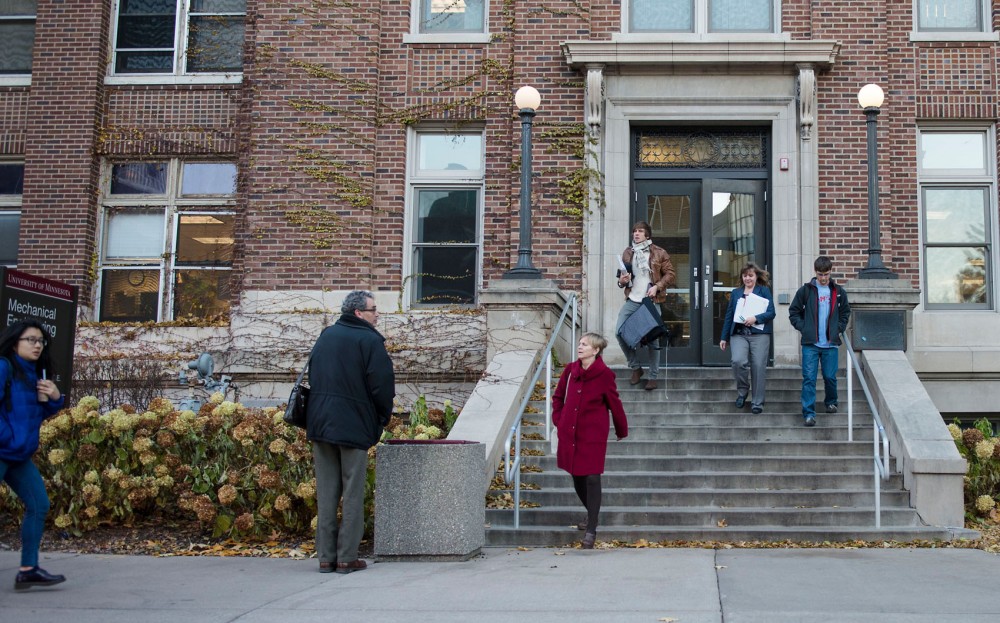New pay raises for postdoctoral associates are straining some faculty budgets, and causing concern over potential cuts to postdoc contracts.
In early 2016, the U.S. Department of Labor announced updates to the Fair Labor Standards Act, a federal employee protection law. Starting Dec. 1, 2016, employees salaried below $47,476 — nearly twice the previous threshold — would be eligible for overtime pay. The change has impacted University postdoctoral associates and about 600 other employees, said University Vice President for Human Resources Kathryn Brown.
In order to comply with the new regulation, the Office of Human Resources established a minimum postdoc associate salary of $47,476, she said.
Despite a federal court injunction that stopped the FLSA updates last fall, the University administration didn’t revert the postdoc base salary, Brown said. Colleges and departments will be responsible for working the new threshold into their budgets, she said.
The Postdoctoral Association advocated for the University to keep the pay base after the injunction, said University PDA policy liaison, Kristina Burrack. Now, they’re working to ensure no postdocs are terminated early because of budget issues, she said.
“We’ve been trying to advocate for a central response from the University to provide bridge funding for any faculty that are concerned about not coming up with the needed funds. Obviously, we haven’t gotten anywhere,” Burrack said. “We’ve kind of felt like they’ve just been passing the buck down the line.”
Right now, it’s hard to tell how faculty researchers may be impacted, said Dean of Graduate Education Scott Lanyon. Potential effects will become more apparent in the coming year when faculty start renewing their postdocs’ contracts and nearing the end of their grants, he said.
There were 691 postdoctoral associates employed at the University’s Twin Cities campus in summer 2016, according to most recent available data. About 78 percent had salaries less than $47,476, the new annual pay base.
The College of Science and Engineering, the Medical School and the College of Biological Sciences — which hosted about 29 percent, 25 percent and 14 percent of the University’s postdocs, respectively, in 2016 — declined to comment for this story.
So far, University officials have been notified that four postdoctoral students will likely have their contracts cut in the College of Pharmacy, Lanyon said at a February University Senate Research Committee meeting. He added that it is possible that some CBS postdocs will be terminated early.
Confusion over impact
Miscommunication among faculty, college deans and department chairs has further confused the situation, said Geoffrey Rojas, PDA president.
Faculty researchers hire postdocs and pay them independent of the University, usually through outside grants.
In many colleges, deans told faculty that funding requests to cover the pay increase should first go through department chairs, Rojas said. Deans assumed the department chairs would then notify them if faculty were struggling, but some department heads announced to faculty right away that they couldn’t give them any money, Rojas said.
As a result, some faculty stopped pursuing financial assistance, so deans may not be aware of existing budget problems, Rojas said. Further, some faculty don’t keep close tabs on their budgets, he said.
“Our concern is [faculty] … won’t really assess their budgets until it’s too late to do anything because often faculty aren’t aware of how much money they have left on a grant,” Burrack said. “It can happen where six months go by, and you realize, ‘I don’t have the money to pay my postdoc at this level.’”
Postdocs facing difficulties may also refrain from voicing concerns because of worries about backlash, said University professor Jerry Cohen.
“Some of the ones that won’t want to talk … are the ones going through this because there is this problem of some of them being in adversarial laboratory situations,” he said.
Because hundreds of postdocs are spread across 14 colleges, it’s been difficult for the PDA and other campus entities to assess how impacted parties are managing the pay increases, Rojas said.
“The Postdoctoral Association has asked Human Resources to reach out to all of the postdocs and faculty to find out [what] is occurring, but they have essentially said they can’t,” Rojas said. “[The PDA doesn’t] have the capacity to reach out to every postdoc and find out what’s happening.”
Some postdocs find relief
The salary increase was long overdue, Lanyon said. At the February SRC meeting, he said the University lagged behind other institutions in postdoc pay raises for the last several years.
“There was a high variability in terms of postdoctoral salaries, and that created a gulf,” Cohen said. Cohen said he thinks researchers should ensure their postdocs make livable wages, but that often isn’t the case.
According to the summer 2016 data, postdoc salaries ranged from about $34,000 to $70,000.
Postdoctoral associate Chenguang Wang said he will get a pay raise as a result of the new base salary. The previous threshold was too low to live in the city, he said, plus postdocs often work long hours on both weekdays and weekends.
Daniel Ossmann, a German researcher who finished his postdoctoral appointment at the University this week, said if he hadn’t been able to negotiate his pay above the $40,000 standard, he wouldn’t have been able to afford living in the U.S.








